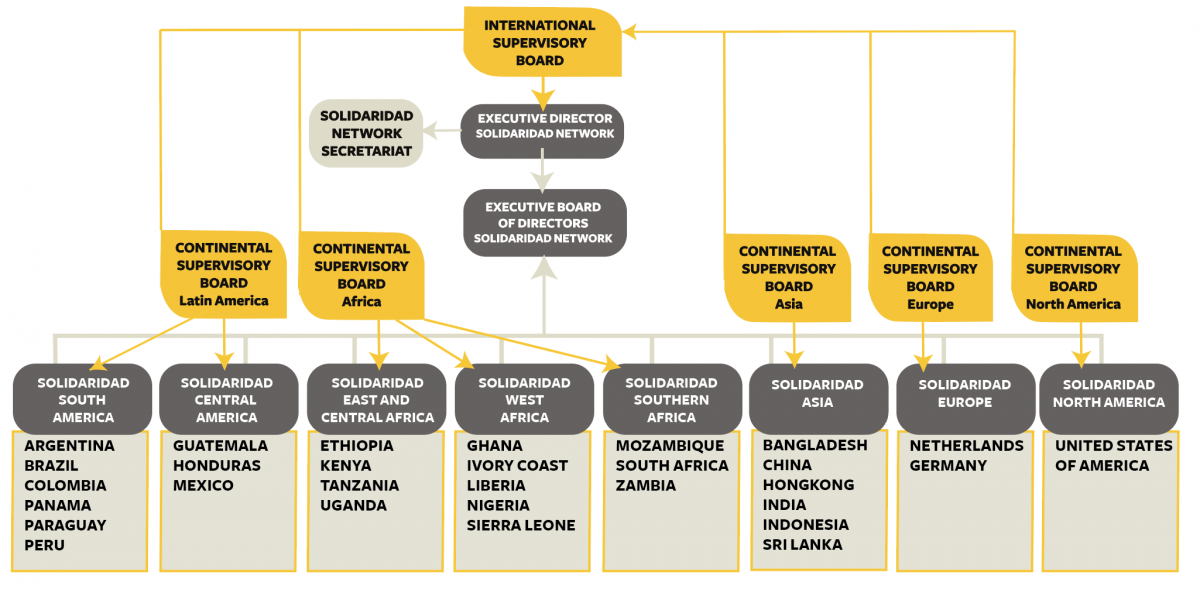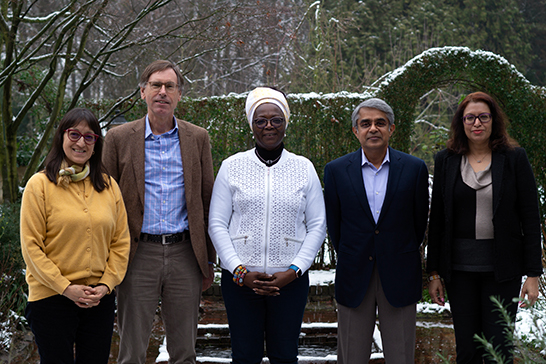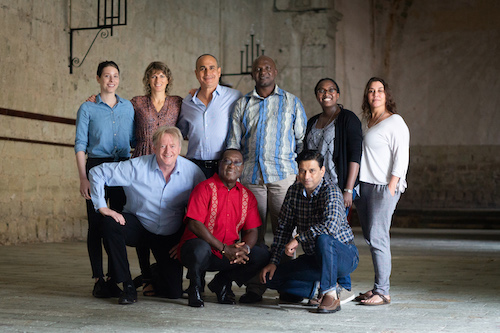The premise of the structure is that it promotes capacity building: strengthening Solidaridad teams in the region, enabling them to take control of supervisory tasks and to manage programming themselves. The regional Solidaridad teams cooperate with their own partners on the planning, implementation, communication and evaluation of programmes, and on reporting their results.
Solidaridad Network – legal entities

The organization consists of 8 regional centers throughout the world with a Network Secretariat connecting the regions. The Network Secretariat (officially Solidaridad Network Foundation, founded in 2011) is located in Utrecht, the Netherlands, in the same office building as Solidaridad Europe, one of the regional centers. The Network Secretariat consists of the Executive Director with a small staff surrounding him and delivering the following tasks that support the whole network:
-
Providing services for the development and enforcement of our quality assurance systems and standards for financial management, accountability and control, planning, monitoring and evaluation, ICT infrastructure and human resource management.
-
Responsible for global communication, including our international website and the development of tools for global branding and communication guidelines.
-
Facilitating the process of global policy development by supporting our global organizational entities such as the Executive Director, the Executive Board of Directors, the Global Commodity Teams and the Global Account Teams.
All managing directors have to adhere to agreed policies and have to stimulate optimal cooperation, open communication and knowledge exchange between the regional centers. Furthermore, they are responsible for fostering a “giving factor” between regions, making fair deals on payment for joint and mutual services and joining forces in order to be stronger together.
In order to ensure efficient daily operations and an efficient payment structure, the eight regional expertise centres are grouped on five continents, each with their own supervisory structure. Legal entities for these five continental Solidaridad regions are established in Utrecht, the Netherlands (for Europe), San Francisco Bay Area, USA (for North America), Panama City, Panama (for Latin America), Nairobi, Kenya (for Africa) and Hong Kong, China (for Asia).
Supervision & Governance
Solidaridad’s governance structure is based on the continental European governance model. This means, amongst others, a board with a two-tier structure, emphasis on dialogue with stakeholders and focus on achieving consensus. This governance model follows the subsidiarity principle. It aims to ensure that decisions are made as closely as possible to the deepest levels in the organization and that constant checks are made to verify that actions across Solidaridad Network are justified in light of the possibilities available at continental, national or REC level.
Within Solidaridad, the International Supervisory Board (ISB) is at the highest level of international oversight. The ISB monitors policies, the quality of programmes, financial control and the performance of the Executive Board of Directors (EBoD). Direct supervision of the RECs is organized by continent. Each Continental Supervisory Board (CSB) is represented in the ISB by its chair, thus enabling the ISB to focus on the interest of Solidaridad Network as a whole, instead of focusing on individual RECs. The members of the ISB are:


From left to right: Roxana Barrantes, Jan Karel Mak, Mariam Dao Gabala, Kannan Pashupatty, Shahamin Sahadat Zamin
The Continental and Supervisory Board’s work in their respective regions set the parameters for growth, determine the future direction, and ensure a strong national and continental presence. The boards strive for an optimal composition of five members, respecting a balanced composition in terms of gender, regional representation and areas of expertise and knowledge.
Management
The Executive Board of Directors (EBoD) is the main policy-making body, ensuring coherence between international commodity strategies and regional programmes.
The EBoD is also responsible for the overall implementation of the international policy and commodity strategy. It consists of the managing directors from each regional expertise centre. The chair of the EBoD is the Executive Director of Solidaridad Network, Jeroen Douglas.

Solidaridad Executive Board of Directors, 2019
Back row: Rebecca Kaduru (Director North America), Heske Verburg (Director Europe), Gonzalo la Cruz (Director South America), Mandla Nkomo (Director Southern Africa), Rachel Wanyoike (Director East and Central Africa), Michaelyn Baur (Director Central America) Front row: Jeroen Douglas (Executive Director), Isaac Gyamfi (Director West Africa), Shatadru Chattopadhayay (Director Asia),
Network Secretariat
The executive director is supported by staff who work at the Solidaridad Network Secretariat, based in Utrecht, the Netherlands. The Network Secretariat fulfils several functions within the global organization. It facilitates global policy development and acts as a service centre for the eight regional offices. The Network Secretariat provides support related to Solidaridad's quality assurance systems, as well as maintaining standards for financial management, accountability and control, planning, monitoring and evaluation, ICT infrastructure, and human resource management. It is also responsible for global communication, which includes managing the international website, and developing communication guidelines, tools and standards for global branding.
REMUNERATION
In accordance with Solidaridad’s statutes, neither the members of the International Supervisory Board nor of the Continental Supervisory Boards of Solidaridad receive remuneration of any kind.
Remuneration of Solidaridad's directors entails a base salary, equal to the total guaranteed annual income (monthly salary, holiday pay and fixed 13th month). Base salary levels adhere to the Guidelines for the Remuneration of Directors of Philanthropic Organisations (Adviesregeling Beloning Directeuren Goede Doelen), set by the Dutch Association of Fundraising Organisations (VFI). The guidelines were developed by Goede Doelen Nederland and set maximum levels of annual income (gross annual salary, holiday pay, any end-of-year bonus, and other income components). The guidelines take into account factors such as the size and complexity of the organization.
Remuneration of Solidaridad directors complies with the Dutch Standards for Remuneration Act (Wet Normering Topinkomens 2015) which determines maximum annual incomes. Solidaridad also complies with the salary scales as applied by the Dutch government for civil servants, the so-called BBRA scales. The executive director's salary fits within BBRA scale 17. The managing directors' salaries range from BBRA scale 15 to 16.
Remuneration of employees is embedded regionally, based on policies and regulations that can vary per Regional Expertise Centre.
Remuneration of all employees based in the Netherlands (the Solidaridad Network Foundation and Solidaridad Europe) is based on the BBRA scales.
